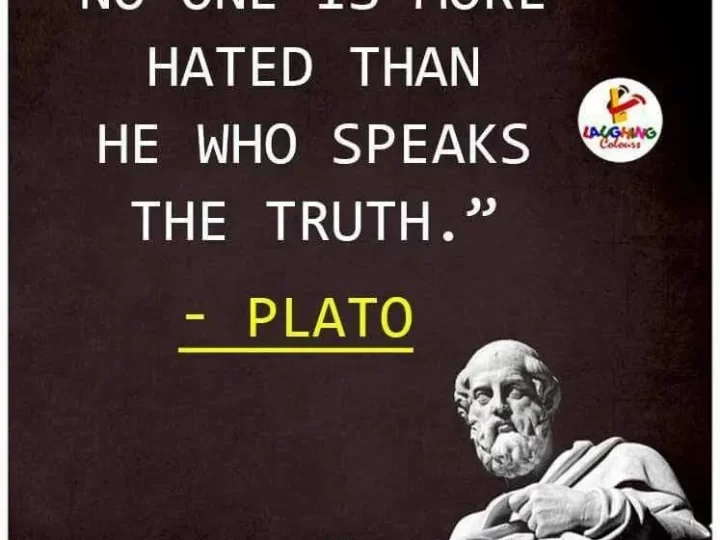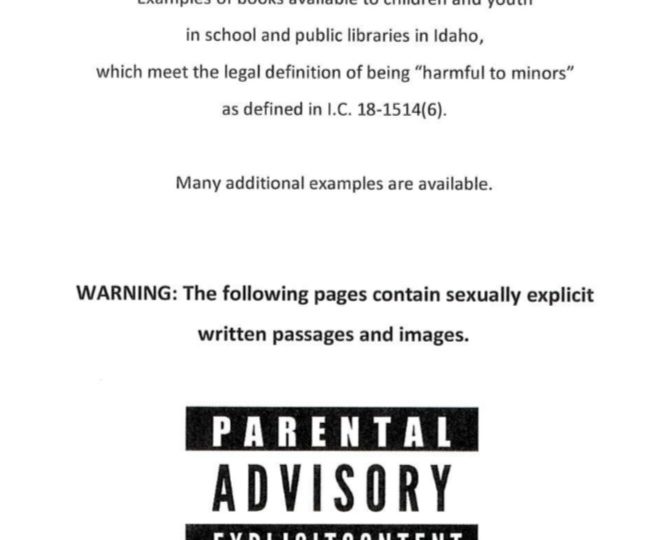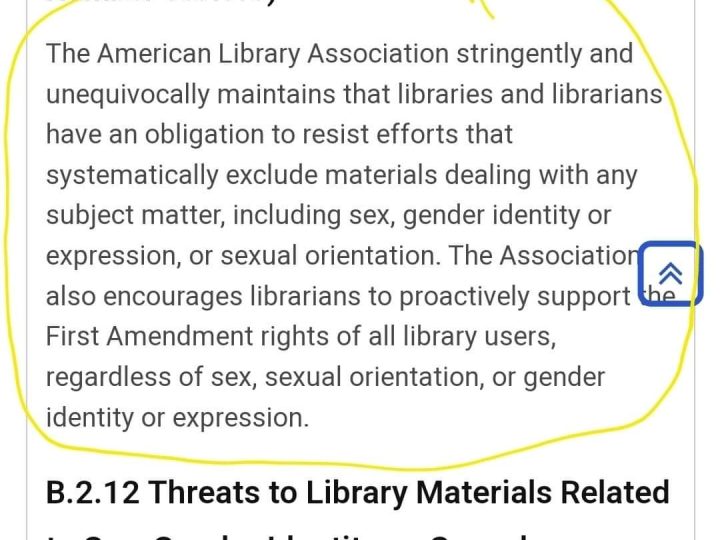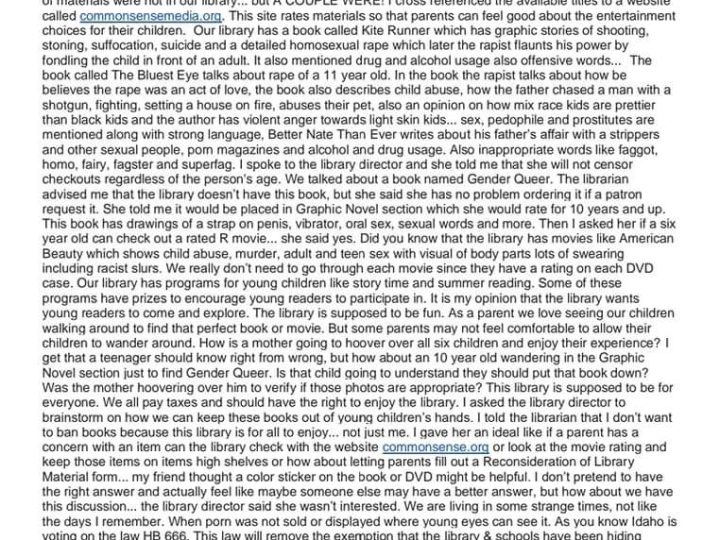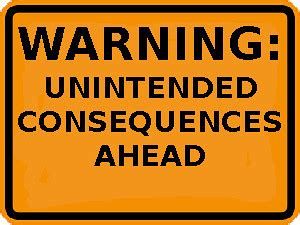
One of our supporters wrote a few responses to some of the arguments to the sexually explicit materials. I found his thoughts to be well thought out and a good representation of our concerns.
.
Response To Book Arguments
Claim:
“Right-wing fringe groups here in Idaho have successfully removed books about LGBT communities…. The first step in suppressing people is suppressing books and literature and thoughts and ideas about them.”
Response:
Nobody has removed any books from the Boundary County Library, nor has anyone tried to block the library’s ability to obtain certain books as interlibrary loans. Rather, the issue at stake is whether new sexually explicit books should become part of the library’s permanent collection or accessible to minors.
Since a library is not an infinite resource, it must always be making decisions about which books to bring in. Libraries frequently make selection decisions based on a range of criteria, including what books will be healthy for their community of patrons. For example, it is common practice for public libraries in the United States not to order books promoting misinformation or potentially harmful viewpoints (i.e., racism, neonazism, propaganda, etc.). If this type of selection process constitutes “censorship,” then every library practices censorship since no library has space for every book.
In reality, we need to be discussing whether it is harmful to have sexually explicit books in the children’s section.
Claim:
“They are looking to pre-emptively censor the materials that are in our library district.”
Response:
No one in Boundary County is seeking to censor or ban any book. For a book to be “banned” or “censored” would mean the title could not be ordered on interlibrary loan. But nobody is advocating such a ban. Rather, the question at stake is whether sexually explicit materials should be accessible to children. Media outlets like NPR are trying to propagandize the public into believing that even though our library has never held these types of books in all its years of operation, that refusal to change this now represents a wave of book-banning and censorship. This would be comparable to demanding that a supermarket begin carrying a new product it had never previously had on its shelves, and then claiming that failure to start carrying this product represents food-banning and a withholding of food from the community.
Claim:
We live in a time of “unprecedented censorship.”
Response:
This is false, because we actually live at a time of unprecedented information access. At a time when there is such a proliferation of information and materials available, a library has a responsibility to pick which information it will be made available to its community of patrons. This is because a library is a curated collection.
The criteria used to determine what titles make it into the curated collection, or which books will be sustained in the face of a book challenge, cannot be value-neutral, but must necessarily be attentive to the actual needs of the community. Attention to the needs of a community is why public libraries typically do not provide leaflets on how to commit suicide, how to build bombs, or how to stir up hate against certain groups. It is also why libraries in Jewish communities will be sensetive not to display books by authors known to be anti-semitic or who to deny the holocost. This basic principle is widely recognized by librarians and has been well-documented in the peer-reviewed literature in the field of Library and Information Science.
Much of what the ALA promotes is questionable, however Even the ALA’s policy statements on the need for “intellectual freedom” and “unrestricted” information access are contextualized in such a way to exclude hate speech, defamation, child pornography, personal information, and state secrets. This is because it is widely recognized in the field of Library Science that information access cannot (and should not) be total and unqualified, but must be regulated by the actual needs of the community.
Our claim is simply that sexually explicit materials are antithetical to the actual needs of our community, and that such a claim can be objectively verified under a process of due diligence. If this is correct, then the insistence that such books not become part of the permanent collection is no more censorship than the filters on the library’s computers constitute censorship.
Claim:
They are using “parents rights” and “moral panic” to “[restrict] access to books.”
Response:
Statements like these are rhetorically effective because they appeal to political prejudices and fear. Yet such statements fail to understand how libraries actually work and what the library’s obligation to the community actually is.
Many people do not realize it, but every book a library holds comes at a cost. For each book there is the cost of storage, of preservation, or organizing, as well as the indirect costs diffused throughout the entire collection. Moreover, every book that takes up space in the collection necessarily excludes another book that might otherwise be there. This is precisely why librarians must routinely assess the value of each book, and constantly engage in both weeding/thinning as well as acquisition. Within the peer-reviewed Library and Information Science literature, it is well established that a number of considerations go into both weeding of old titles and acquisition of new titles, including user-demand, frequency of use, content of work, etc. Regarding the content of a work, librarians frequently must ask questions such as the following:
- Has certain content been superseded by more recent scholarship?
- Is this content relevant to our user-base?
- Does the content of this work promote ideas that could be actually harmful to our community?
It is this third question that is relevant to the current debate. Communities, such as ours, are simply seeking to actively participate in the book availability selection process. We contend that sexually explicit childrens’ books are actually harmful to our community. We have good evidence for this claim. The national magazine, Salvo, has reported that the Pacific Northwest is a hotbed of sex trafficking, and that “sexually explicit materials and books are among the tools traffickers use to break down the barriers of children in preparation for victimizing them.”
Comment (1)
-
If these items are allowed in our library my kids will not be simple as that. This woke narrative that’s being pushed is disgusting and material that can be viewed by or accessed by kids should not be even rotely allowable.

